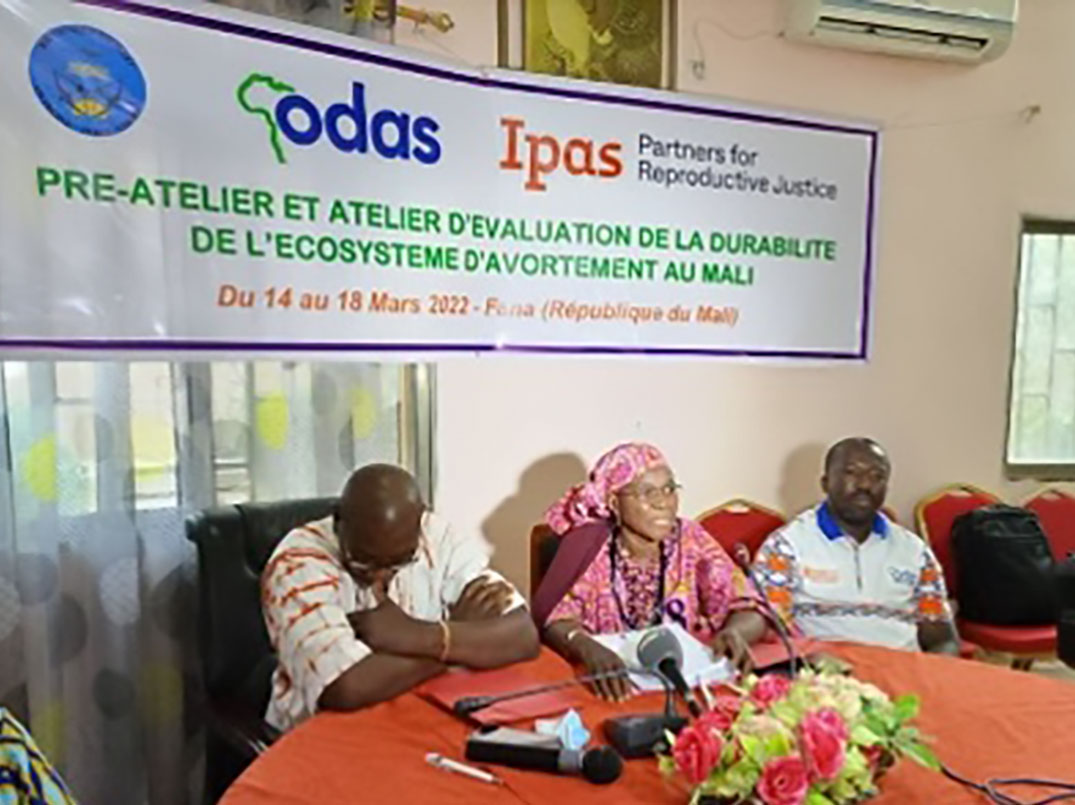An assessment of the abortion ecosystem in Mali recently conducted by Ipas Francophone Africa in partnership with government leaders, community members and local organizations shows a great need—and significant support—for expanding the availability of safe abortion and contraception services.
“Access to safe abortion and contraceptive care is critical for the health of women and girls,” says Dr. Bilguissou Balde, director of Ipas Francophone Africa. “But abortion in Mali is legal only in cases of incest and rape, or if the life of the woman is endangered. In addition, the need for modern methods of contraception is not being met.” Fully meeting the needs for contraceptive, maternal and newborn, and abortion care in Mali would reduce unintended pregnancies and unsafe abortions by 90%, according to the Guttmacher Institute.
The three-day national assessment, organized by Ipas and Le Centre ODAS (Organisation pour le Dialogue pour l’Avortement Sécurisé / Organization for Safe Abortion Dialogue), focused on building a sustainable abortion ecosystem in Mali. It brought together health professionals, religious leaders, civil society organizations and government leaders, and included a series of community dialogues. Issues such as laws and policies, health financing, and the current availability and access to abortion care were discussed in depth.
The assessment concluded with the development of a national workplan for expanding access to sexual and reproductive health care that will be led by the Ministry of Health and Social Development. Dr. Bintou Tiné Traore, speaking on behalf of the ministry, encouraged advocates of sexual and reproductive health and rights to mobilize support for access to safe, high-quality abortion care.

Dr. Bintou Tiné Traore of the Ministry of Health and Social Development (center) speaks at closing session of the assessment alongside representatives of the Malian Society of Obstetrics and Gynecology and Ipas Francophone Africa.
Local organizations will be able to use the workplan as guide for working in their communities to advance sexual and reproductive health and rights,” says Balde. “And with religious leaders, health providers and others now speaking out publicly about the need for safe abortion care, we believe this is a significant step toward making safe abortion and contraceptive care available to all who need it.”


